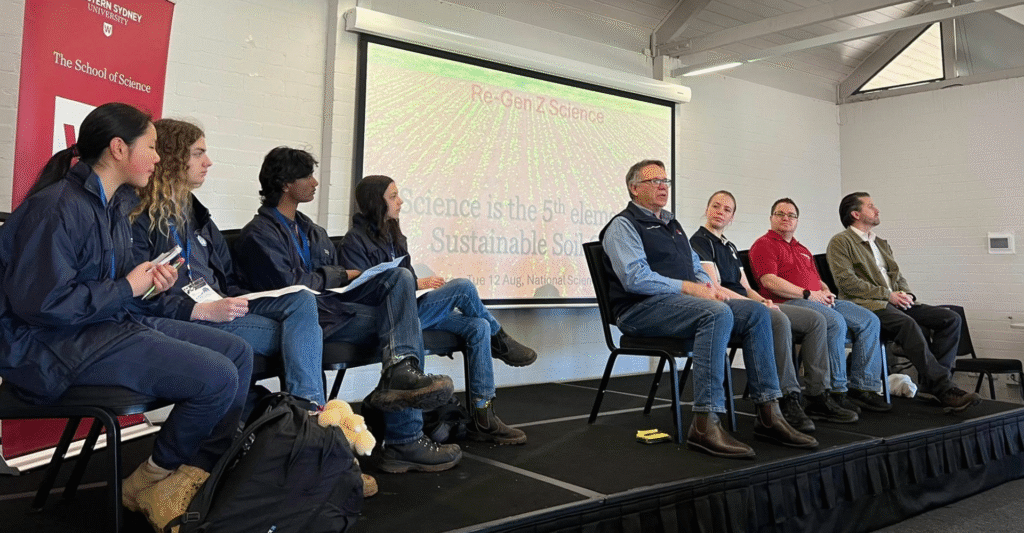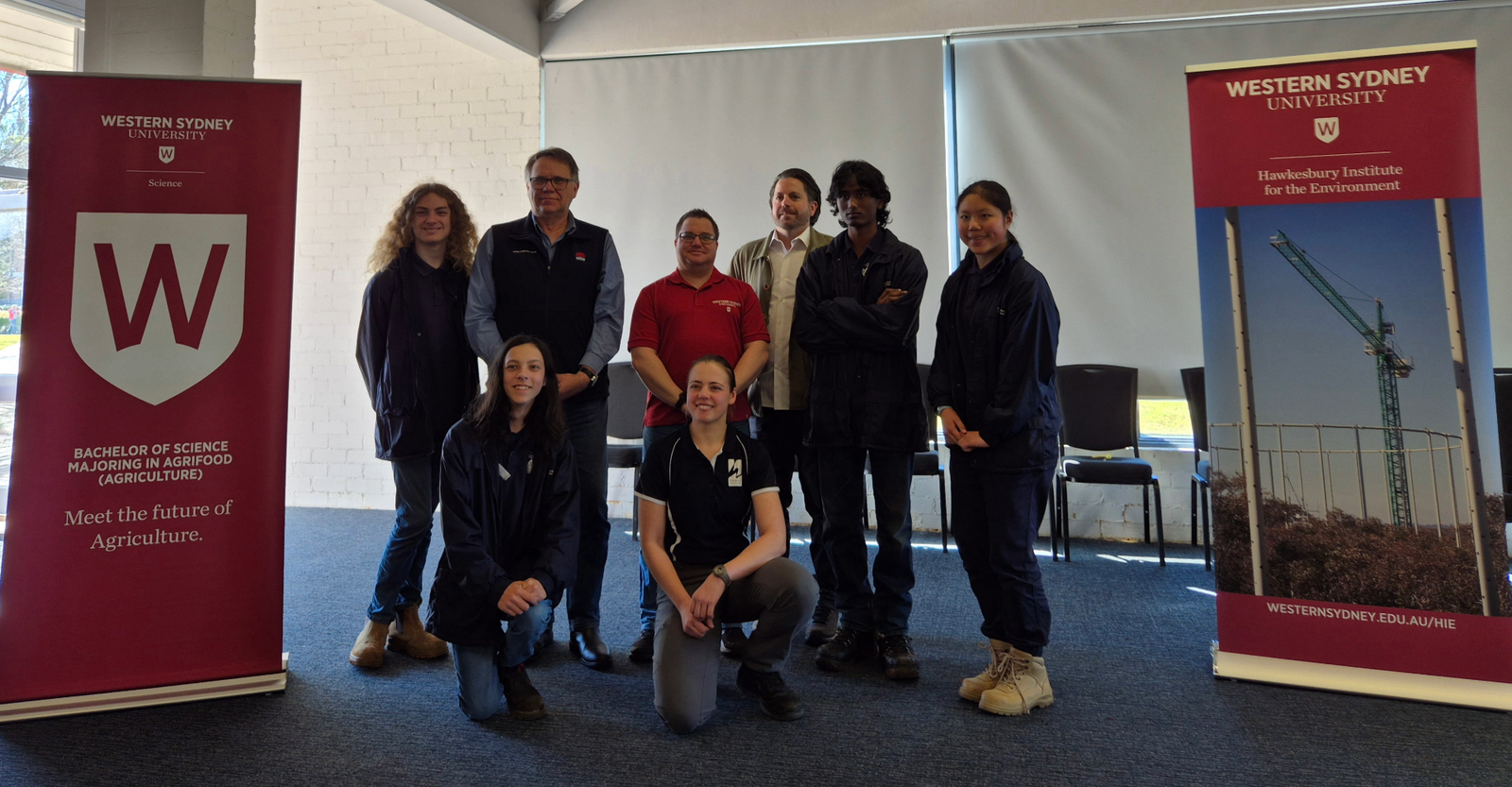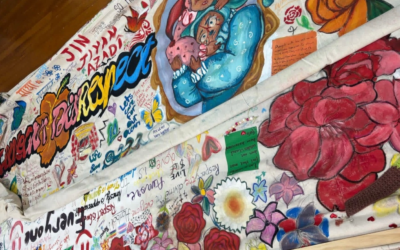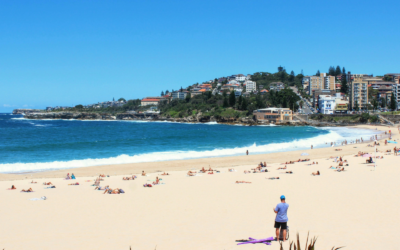“Re-Gen Z Science” is headed by Western Sydney University’s Dr. Mark Jones and School of Science Engagement Officer Loise Graham. With a focus on making science relevant to younger generations in the Hawkesbury, the program covers how science can address some of the world’s most pressing issues with relevant solutions.
Covering everything from water management and soil sustainability to regenerative agriculture and ecosystem restoration, the workshops aren’t just fun student excursions – they’re an opportunity for community impact.
A new group of students comes through daily to participate in site inspections, panel discussions, workshop sessions, and a mini lecture on how AI and information systems can help science. The best part? The ‘design sprint’, where students brainstorm ideas to take what they’ve learnt and apply it to the real world. Five projects from the first session on Monday the 11th of August have already been adopted by Western to apply in the local community.
The program is a part of Western’s contribution to National Science Week 2025, adopting a “ground up” approach to inspire emerging students. Armed with new knowledge, students can become their own changemakers, whether it’s in their homes, schools, communities, or their future.
‘To take that knowledge and turn it into something is the power of youth’, said Richmond Agricultural School’s principal, Kris Beazley.

Tuesday’s expert panel and the Centre of Agricultural Excellence student moderators. Photo credit: Kris Beazely, 2025
The workshop on Tuesday 12th of August focused on soil care. After a site inspection of the campus to see various types of soils, students sat down to a panel featuring Richard Stephens, NSW Local Land Services; Charlotte Weaver, Hawkesbury City Council Sustainability Officer; Dr Thomas Jefferies, Western Senior Lecturer, Microbiology; and Dr Jason Reynolds, Western Senior Lecturer, Chemistry. The Centre of Excellence in Agricultural Education provided student moderators, who asked in-depth questions about the importance of soil health, especially in the Hawkesbury.
‘We can’t feed the Earth’s population just from greenhouses. The Earth runs off that 10 centimeters of top soil – that’s what’s sustaining the world’, said Dr Reynolds.
‘If we don’t protect that skin of the Earth, agriculture will fall over, and so will food production’.
Experts shared the secret to healthy soil lies in its biodiversity, and ensuring it’s filled with good macro- and microorganisms – from bacteria to bugs. Unfortunately, it doesn’t always stay that way.
‘An ecological approach to improve soil is the best way forward’, said Stephens. ‘We can still use chemicals, but we should be judicious and use as much natural processes as possible’.
‘Climate change impacts soils in many ways. Higher temperatures means that there’s a faster evolution of harmful bacteria in the soil. Flooding also washes the soil back. Those are large threats on global scales’, Dr Reynolds warned.
Weaver reminded everyone that small changes can have a big impact too – even something as simple as removing the grass in your backyard. ‘Biodiverity loss is one of the biggest and hardest things to measure,’ she said.
‘Backyards and communities are also meaningful, not just in-industry. It’s important to be interested and understand what you have. It’s how you learn, and how you teach others’.
Student moderators questioned the experts on how to improve and maintain soil health and biodiversity in the future. Their advice was surprisingly simple.
‘I tell farmers, don’t be afraid of soil. The best tool on your farm is a shovel. Don’t be afraid to get your hands dirty – do those simple [biodiversity] tests’, said Stephens
‘Find a plant you can plant in your backyard, and do it’, said Weaver.
‘Plant a tree and watch it grow. Get involved. Plant something native’, said Dr Jefferies.
‘Put soil beneath a microscope and look at it. Act as a detective to see how that soil came to be. You can learn tens of thousands of years, just from looking’, said Dr Reynolds.
The second half of the day delved into the technological benefits of artificial intelligence to science, and how the boom of digital science can be applied to the local region. For these digital age students, it was an opportunity to see how everyday technology can have large scale impacts – even something as simple as a computer modelling system.
‘For the first time ever in science, we have the ability to understand’, Dr Jefferies said. ‘At the research level, we can understand without having to simplify it’.
Workshops and initiatives like this create connections between the scientists of today and future scientists, paving the way for generations of change.



